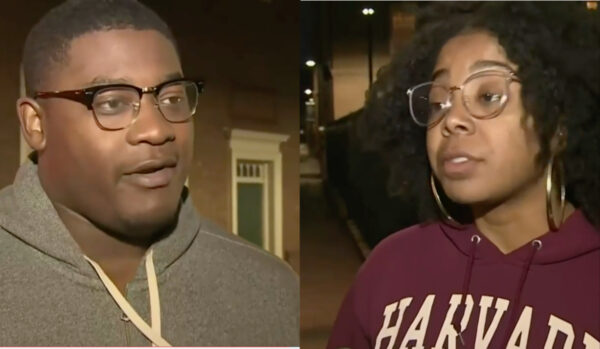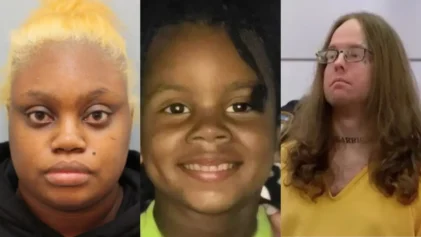Harvard campus police held four African-American undergraduates at gunpoint after a false 911 report alleged someone in the room had a gun.
While the campus administration informed the graduating seniors the cops were responding to a hoax, one of the students said the group is “traumatized” by the ordeal. They are also disappointed at how quickly and quietly the school moved past the botched raid without answering their questions.

At about 4 a.m. on Monday, April 3, five armed officers from the Harvard University Police Department banged on the door of Jarah K. Cotton’s suite, located in the almost 100-year-old dormitory Leverett House, according to The Crimson.
Cotton and her suitemates Jazmin N. Dunlap, David G. Madzivanyika, and Alexandra C. René were still foggy from sleeping when the police demanded by force of weapons that all four of them “open up.”
In an interview with The Boston Globe, Cotton said they “were all terrified” and “frazzled” by the events of that morning.
An anonymous caller contacted their dispatch and reported someone was “threatening violence against occupants” of the dorm. Someone from the department called Cotton and René’s phones about 30 minutes before the raid, but because they were asleep. No one answered. The police decided to raid the room.
The officers arrived dressed “in full riot gear” and ordered the four out of the suite, instructing them to keep their hands in the air. They then made the students enter another suite as they searched their space for firearms.
Cotton said the officers immediately pointed their rifles directly at them.
“All I can recall having in my mind is ‘I haven’t done anything,’” Cotton said.
Madzivanyika said the group complied because they didn’t know what was happening, WHDH reported.
When the officers could not find anything after 20 minutes, one came over to the group of Black students and explained it had been a false report. They responded to what seemed to be an active threat in the building, and the students could return to their rooms.
HUPD discovered “negative results for an individual with a firearm or any persons acting in a suspicious manner,” says the department’s spokesperson, Steven G. Catalano.
According to sources, this phenomenon of fake reports to 911 dispatchers is called “swatting” and has been frequent on campuses across the state. The school alerted the Boston branch of the FBI about this prank, which the agency says is one among thousands each year.
Now, the group is left to process their feelings about the raid— not only the trauma of having guns pulled on them by police but the social implication of being Black in a white space and assumed to be connected to criminal activity.
“We were all extremely scared, particularly because my roommates and I are Black students who have been bombarded our whole lives with stories and images portraying how situations such as this had ended up terribly,” Cotton wrote in an email to the school newspaper. “We felt our lives were in danger. We are traumatized.”
She also said she “felt like a criminal.”
René says she felt “very dismissed by the university” when she pushed for deeper responses to the incident.
“This isn’t something that happens a lot, so I can understand how the first response is not the best response,” said René. “But there has been limited action to remedy the situation.”
Leverett House Interim Resident Dean John Nowak, Faculty Deans Daniel G. Deschler and Eileen E. Reynolds emailed students about the incident later in the morning.
“We all process activities like this morning’s differently. Please check in with yourself and on each other,” the deans collectively wrote. The officials suggested the Harvard Counseling and Mental Health Services support lines as resources for students impacted by the raid.
Cotton said this was a good effort, saying, “It at least gave students who had become privy to the situation, or who had heard it, the opportunity to hear what actually happened.”
But for the four, it was not enough. They still have several questions that have gone unanswered.
Cotton said, “being accosted in your place of residence warrants a University-wide response, warrants the president’s attention, warrants the dean of students’ attention, warrants an email, at the very least.”
Dunlap said the school should at least have a conversation about what to do just in case the threats are real next time.
“Just because this threat wasn’t imminent this time doesn’t mean it won’t be next time,” she said.
Despite requests, Jonathan Palumbo, the school’s spokesperson, has not yet commented on the raid. The police force also has not released a statement regarding the raid, leaving the dean’s email as the only response from Harvard’s administration.


